September 2022 Edition
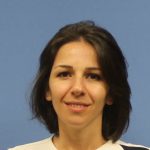
Paytsar Muradyan, Atmospheric Scientist, EVS
The career path of Paytsar Muradyan, an atmospheric scientist in Argonne’s Environmental Science Division, makes a strong case for the power of self-agency, the psychological will to make changes that bring positive things into one’s life.
Originally from Armenia, Muradyan was working towards a master’s degree in physics when she fell in love and married a fellow physicist. In order for him to pursue his doctorate, they moved to West Lafayette, Indiana, where Muradyan was firmly convinced she’d be miserable until they could return to Armenia. She took the year off from her studies and spent her time learning English. An avid reader and book collector, she let good books lead the way.
“I’d read a few pages of one author and write down and memorize all the vocabulary words,” she said. “I quickly realized each author used a particular vocabulary set. I spent a fabulous eight months taking out library books, one author at a time, and that was a useful learning style for me.”
During that time, Muradyan read an incredible range of books. Garage sale romance novellas she could pick up for 10 cents so she didn’t feel bad scribbling notes on them. The complete works of Gabriel Garcia Marquez, who became her favorite author. The science journal Nature, which led her to the article – “The Hole Truth” – that changed her outlook, her field of study and, ultimately, her career.
“It was the first time I understood that we humans cause atmospheric ozone depletion and, as a result, the ultraviolet radiation ‘seeps through’ the ozone hole, causing significant health concerns and contributing to global warming,” she said. “As a young student in the era of no personal computers and internet at home in Armenia, I was unaware of our contribution to climate change. The knowledge opened my eyes to a whole sphere of science.”
With the encouragement of another young woman at Purdue University who was juggling her own PhD course load, the raising of two young children, and various volunteer positions, Muradyan decided to apply to Purdue’s earth and atmospheric science department.
“If she could do it, why not me?” Muradyan recalled thinking. “That woman was a real role model. Something changed in me.”
Muradyan began at Purdue as a visiting scientist and left with her doctorate. She also had a new love for scientific opportunity in the United States and a sense of empowerment.
“I began leading my life by the principle that if there is one person that can do it, then so can I,” she said. “If you are asked to make a cable for a project, never think there are other people with the job description of ‘making cables’ who will complete the job. Just jump in on the opportunity, ask to be taught, make the skill your own. You never know which skill in particular is going to be useful in your future. You will never know unless you try.”
Most recently, Muradyan has been recognized for her work to establish a strong presence within the ARM program and for her field study work with the U.S. Air Force on prescribed burns as well as the Department of Energy’s wind forecast improvement program.
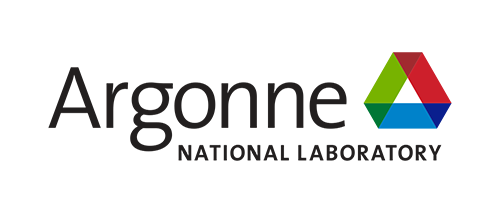
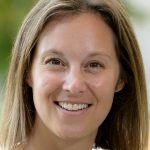
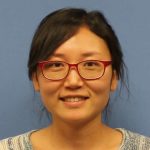
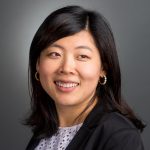 Lei Cheng, Chemist, MSD
Lei Cheng, Chemist, MSD
